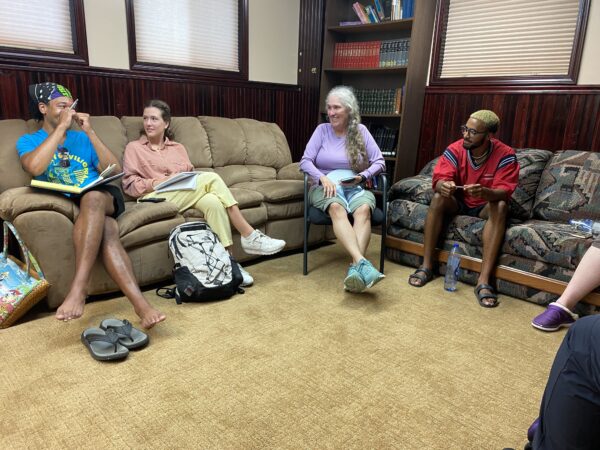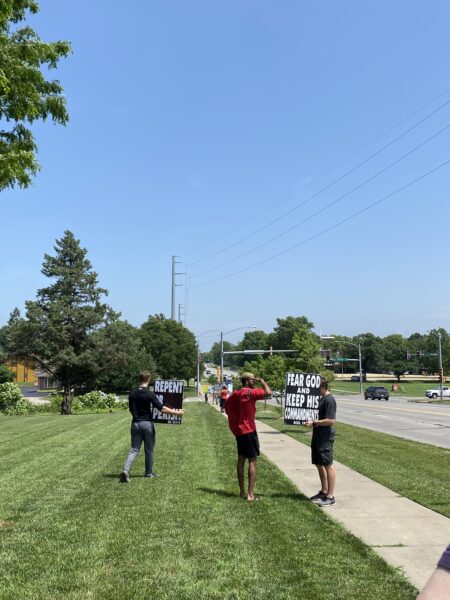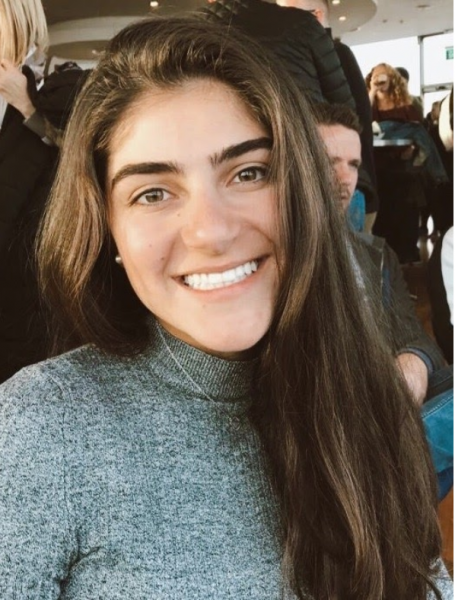“Hold on – you’re studying who to learn what?”
For the past three months, I’ve been on the receiving end of quite a few baffled looks and dumbfounded questions. They’re all in response to one statement: “I’m studying members of the Westboro Baptist Church (WBC) in order to learn about empathy”.
The Empathy and the Religious “Enemy” Project (ERE) is an ethnographic-style research endeavor led by Dr. Hillel Gray, a professor of Jewish Studies at Miami University. For over ten years, ERE has been conducting interviews with members of profoundly controversial religious groups (like WBC) in an effort to understand their lived experiences as fellow human beings. Interviewers practice non-judgmental, critical-empathic listening in order to build relationships with individuals who are often hated and dehumanized by members of the larger society. WBC is known for spreading anti-LGBT, anti-Judaism, and anti-Evangelical messaging, and such behaviors have typically been disagreed upon by the general public.

If you’re like most people I’ve explained this project to, you might be asking yourself, Why would anyone want to empathize with the Westboro Baptist Church? They say such awful things! If so, allow me to clarify: Practicing empathic listening toward these groups does not mean affirming or condoning their religious beliefs or practices, but rather acknowledging the full humanity of people who have been vilified and ostracized by those outside their communities.
As a student researcher for the ERE project, my role was to develop an inquiry question regarding the way WBC members understand and express empathy. I then selected relevant interview segments and used qualitative data analysis software to explore my question: What type(s) of empathy do female WBC members practice in their workplaces? I compared nurse Jael (Phelps) Holroyd, massage therapist Rachel Hockenbarger, and correction officer Abigail Phelps in order to understand how the nature of each woman’s job may influence the type(s) of empathy she exhibits toward her patients, clients, and coworkers, respectively. Below, I share a few of my findings on empathy in the hopes that you may better understand the value of practicing empathy in their own conversations with perceived “enemies.”

Empathy looks different from person to person.
Think about the last time you tried to understand another person’s feelings: Did you watch their body language for clues? Did you analyze what they said to understand their state of mind? Did you picture yourself in their shoes? Although they all represent a form of empathy, each of these strategies requires different degrees of mental, emotional, and even physical engagement as a means of discerning another person’s emotional state.
My study of Jael, Rachel, and Abigail has taught me that different situations require different forms of empathy. As a massage therapist, for example, Rachel regularly practices embodied empathy, where physical contact enables her to understand her clients’ stress and pain without verbal conversation. Perhaps what is most intriguing is Hockenbarger’s reflections on her own use of empathy. She explains that she enjoys her job because of the emotional catharsis that takes place during a massage: “It’s emotional. I do sympathize with them and empathize with them…and it’s very physical. And so I think that’s probably why I like it. It’s therapeutic for me, or relaxing for me.” Hockenbarger’s description of giving massages as “therapeutic” indicates a profound level of empathic identification with her clients, in that relieving her clients’ pain and stress offers Hockenbarger a physical sense of release.
In a 2016 interview, Jael (Phelps) Holroyd responds to a question regarding how she is able to understand people outside the church and see things from their perspective. Holroyd uses sensory words to describe the experience of relating to her patients, saying, “You hear things about people, you see that they’re in pain…and you see it from their eyes” (emphasis mine). These observations suggest that Holroyd is attuned to her patients’ physical expressions of their emotions, particularly when they are suffering. Her description aligns with Aaltola’s definition of embodied empathy, which occurs when “one immediately perceives the mental states of others on account of the expressiveness of the body.” Holroyd’s use of embodied empathy makes sense, given her role as a nurse: she is expected to be able to understand and meet her patient’s needs, even when patients cannot fully vocalize those needs.
Abigail Phelps works as a corrections officer – a role that involves working with law, justice, and order. As a result, she tends to exhibit more distant, intellectually-based forms of empathy, including cognitive and projective. For example, when asked to describe her relationship with a coworker, Phelps used cognitive terms rather than emotional ones: “She is a puzzlement, there’s no question, unless you know all the pieces. And I finally have all the pieces, so now I understand exactly why she is the way she is the way she is.” Phelps’s description of her supervisor as a “puzzlement” indicates that Phelps is making an intellectual effort to understand her, which she feels she is able to accomplish only once she has all the “pieces” of the puzzle. By “pieces,” she is referring to knowledge of the events and experiences that have shaped her supervisor’s current personality and actions – namely, Phelps believes, her relationship with an abusive father. She further explains that gaining knowledge from her coworker’s experiences helped her to better understand her behavior.
My research revealed that each form of empathy can help you connect with the people around you in a unique way. The next time you’re struggling to understand another person’s opinion or perspective, consider your own strengths, as well as the circumstances of the situation, in order to determine the best approach for emotionally connecting with the person in front of you.
We more readily empathize with individuals instead of groups because we relate to their emotional experiences
The WBC’s protests of such culturally “sacred” events as soldiers’ funerals have left many with the impression that members are insensitive to or unconcerned with the feelings of others. Despite this public perception, in a private interview setting, I saw a gentler side of individual church members that most people never get to witness on the picket lines.
I saw Jael cry for the suffering of her patients; Rachel cry for a client who’d just lost a child; Abigail cry for a coworker’s abusive upbringing. I saw that, though these women publicly condemn large groups of people as sinners (including soldiers, homosexuals, and Jews), they have a deep capacity for empathy towards these people in personal, individual relationships – a capacity that extends even to those who oppose and persecute their church. For example, Hockenbarger specifically recalls having given massages to homosexuals she had seen on the picket lines, concluding, “And I empathize with them. They need a massage too: they’re under a lot of stress.” Just as it was easier for WBC members to display compassion and vulnerability in one-on-one interactions, I found that it was also easier for me to feel empathy toward these individual members, rather than trying to empathize with the church as a whole.
In our increasingly divisive climate, it is all too easy to perceive a large group of people as a nameless, faceless, unfeeling mob. However, listening to individuals’ personal stories humanizes them. Finding common ground with one’s political “enemies,” begins with recognizing that the person in front of you is not merely an extension of a larger political entity, but a real human being with thoughts and feelings as complex as your own.
Empathy builds bridges.
Abortion. Immigration. Same-sex marriage. I must confess that, when I think about the depths of hostility and prejudice that exist around our nation’s most controversial debates, I often feel a profound sense of hopelessness. How can we reach a compromise if we can’t hear one another over the shouting? How can we ever move forward if the only perspective we’ve ever considered is our own? One thing I know for certain: pride, self-assurance, and vilifying our enemies just aren’t cutting it. It’s time we try a new approach.
Empathy enables us to comprehend the lived experiences of others in profound ways. It allows us to see from another person’s perspective, while still maintaining our own moral values. The ERE Project defines empathy as “emotion-centered understanding” and proposes relationship-building as a way to reduce the prejudice and division that currently plague our political and cultural climate.
In the end, the point is not to change our research subjects, but rather to teach ourselves and society to be more empathetic and thoughtful when it comes to hearing multiple perspectives. Though I may not agree with many of the beliefs and actions of the Westboro Baptist Church, through working on this project, I have gained a deeper understanding of people I once found utterly incomprehensible. This realization gives me hope that empathy could help bridge the gaps in society that have for so long been tearing us apart.
Written by: Jessie Hicks
Edited by: Emily Ennis, Cheryl Leow

